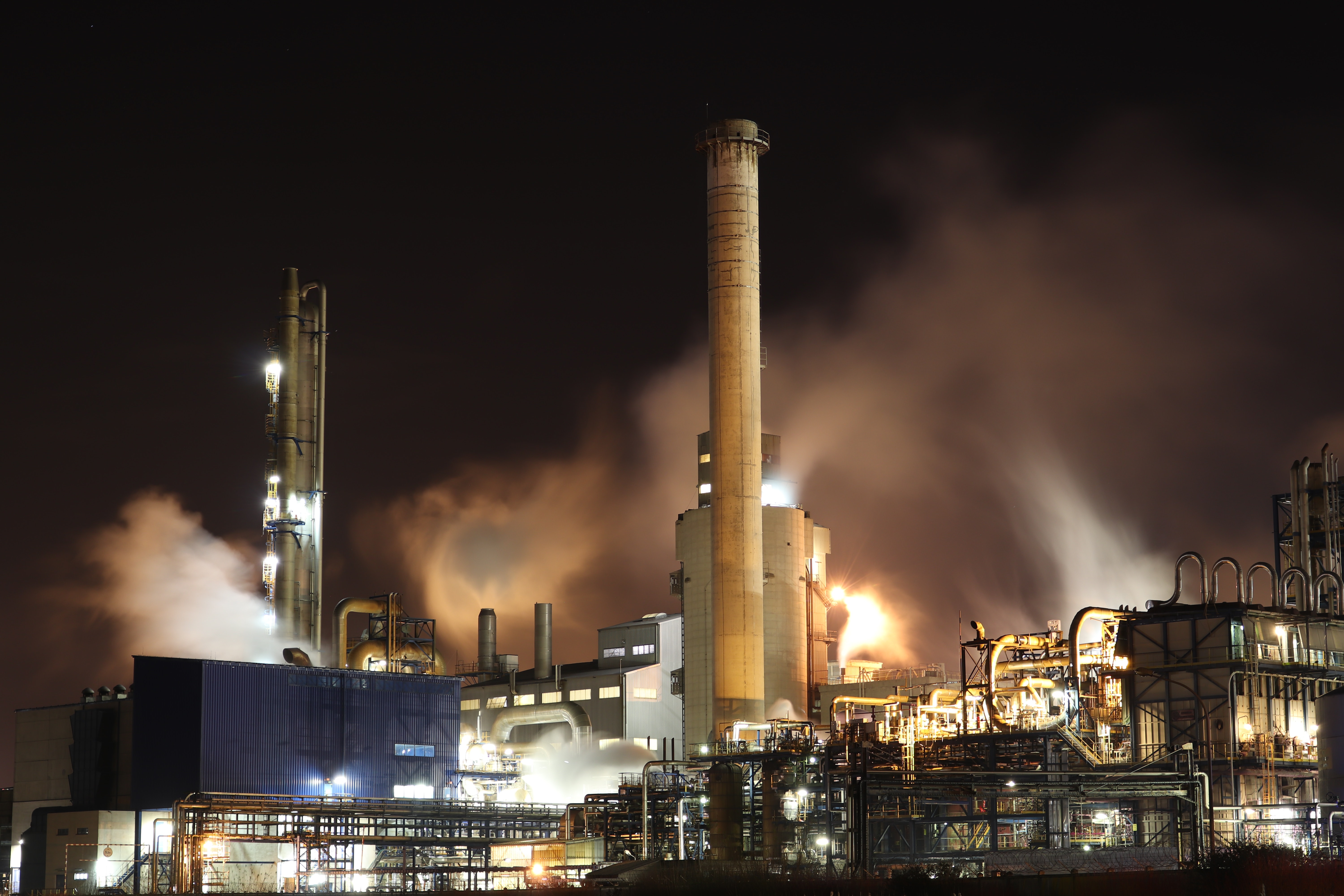Natural gas is an important energy source, most commonly used for industrial purposes, heating, and electricity generation. Thus, providing a case for natural gas stocks.
It includes a mix of hydrocarbons that primarily consist of methane, a greenhouse gas (GHG) that largely contributes to climate change.
Other gasses that are present in natural gas are nitrogen, carbon dioxide, hydrogen sulfide and helium.
The main benefit of natural gas is its low cost and reliability to generate electricity compared to its peers like coal, nuclear, wind and solar.
It currently accounts for a quarter of global electricity generation (IEA, 2020).
According to the U.S. Energy Information Administration (EIA), Natural Gas accounted for 34% of the United States energy-related Co2 Emissions (EIA, 2021).
While natural gas is an energy intensive and pollutive process, the emergence of renewable natural gas can be a viable alternative.
Despite natural gas stocks contributions to climate change, its place in the world’s energy mix will be here for the foreseeable future.
5 Pros and Cons of Natural Gas
Pros:
- Can be renewable (RNG) through biogas upgrading systems (Water Wash, Membrane Separation, Pressure Swing Absorption)
- Cheaper compared to its alternatives (I.e. Coal, Nuclear, Solar, Wind)
- Safer and easier to store than other fossil fuels
- Reliable in varying climate scenarios
- Easy to transport across borders
Cons:
- Highly flammable, therefore transportation can be dangerous
- Emits greenhouse gas (Primarily Methane)
- Includes a process known as ‘’fracking’’, which can be damaging to the environment and surrounding ecosystems
- Can take a long time to process, exposing projects to increased leakage risks
- Pipeline construction can be costly
Segments of Natural Gas
- Upstream: Upstream refers to production and exploration of natural gas assets.
- Midstream: Midstream refers to the transportation and storage of natural gas assets.
- Downstream: Downstream refers to the refining and distribution of natural gas assets.
Below, we will present the 7 Best Natural Gas Stocks to buy in 2023!
7 Best Natural Gas Stocks
- Canadian Natural Resources
- Enbridge
- Kinder Morgan
- Suncor Energy
- Cenovus Energy
- Chesapeake Energy
- EQT Corporation
1. Canadian Natural Resources (NYSE: CNQ)

- Ticker: CNQ
- Dividend Yield: 4.32%
- 10-Yr Dividend Growth Rate: 23.63%
- Payout Frequency: Quarterly
- Payout Ratio: 32.56%
- Market Cap: $67.60 Billion
Canadian Natural Resources is an oil and natural gas producer that primarily operates in regions of Western Canada.
They are the largest producer of natural gas in Western Canada, and the largest domestic producer of heavy crude oil.
In 2022, the company had annual revenues of $32.5 Billion.
With strong free cash flow and a current dividend yield of 4.53%, Canadian Natural Resources is a top natural gas stock to buy in 2023.
2. Enbridge (NYSE: ENB)
![]()
- Ticker: ENB
- Dividend Yield: 6.50%
- 10-Yr Dividend Growth Rate: 12.86%
- Payout Frequency: Quarterly
- Payout Ratio: 268.75%
- Market Cap: $81.31 Billion
Enbridge is a multinational pipeline and energy company. The company is headquartered in Calgary, Canada.
The company owns and operates primarily crude oil and natural gas assets in Canada, the United States and Europe.
Enbridge’s natural gas network moves 20% of all gas consumed in the United States. Their gas transmission and midstream pipelines cover approximately 73,796 miles in 30 U.S. states, 5 Canadian provinces, and offshore coverage in the Gulf of Mexico.
In 2022, the company had annual revenues of $41.05 Billion.
Enbridge is one of the largest natural gas companies in North America. However, keep in mind that the company carries a lot of debt on their balance sheet. As a result, their dividend may not be sustainable.
3. Kinder Morgan (NYSE: KMI)

- Ticker: KMI
- Dividend Yield: 6.23%
- 10-Yr Dividend Growth Rate: 8.35%
- Payout Frequency: Quarterly
- Payout Ratio: 98.44%
- Market Cap: $39.97 Billion
Kinder Morgan is a multinational pipeline, oil and energy company headquartered in Houston, Texas, United States.
The company operates in the pipeline industry, distributing a variety of different oils and gasses. This includes natural gas, crude oil, ethanol, biodiesel, refined petroleum products, and hydrogen.
Their natural gas pipeline network covers approximately 72,000 miles equivalent to 700 cubic feet of storage capacity. Nearly 40% of all natural gas in the United States is transferred and distributed through their pipeline network.
Kinder Morgan employs more than 10,500 people and has approximately $70.07 billion in total assets.
In 2022, the company had annual revenues of $19.20 Billion.
4. Suncor Energy (NYSE: SU)

- Ticker: SU
- Dividend Yield: 4.65%
- 10-Yr Dividend Growth Rate: 12.70%
- Payout Frequency: Quarterly
- Payout Ratio: 28.79%
- Market Cap: $39.97 Billion
Suncor Energy is a Canadian energy and heavy crude oil company headquartered in Calgary, Alberta, Canada.
The company specializes in synthetic crude oil and primarily markets its products throughout the province of Ontario. They also own and operate the former crown corporation, Petro-Canada.
Including branded retail outlets through Shell and ExxonMobil.
Their natural gas network is owned and operated through Suncor Energy Marketing. The services include natural gas wholesaling, load management services, transportation and storage solutions.
Suncor Energy employs more than 16,500 people and has approximately $65.08 billion in total assets.
In 2022, the company had annual revenues of $44.97 Billion.
5. Cenovus Energy (NYSE: CVE)

- Ticker: CVE
- Dividend Yield: 1.81%
- 10-Yr Dividend Growth Rate: 35.82%
- Payout Frequency: Quarterly
- Payout Ratio: 14.50%
- Market Cap: $33.80 Billion
Cenovus Energy is a Canadian oil and natural gas company headquartered in Calgary, Alberta, Canada.
The company owns and operates oil and natural gas assets in Alberta and British Columbia. Their operations include the Elmworth-Wapiti, Kaybob-Edson, Clearwater and Rainbow Lake primarily consisting of rich natural gas liquids (NGLs).
In January 2021, Cenovus made a monumental acquisition of Husky Energy in an all stock deal worth $3.9 Billion.
This combination catapulted Cenovus to the third largest crude oil and natural gas producer in Canada.
Cenovus Energy employs more than 6,000 people and has approximately $42.97 billion in total assets.
In 2022, the company had annual revenues of $51.45 Billion.
6. Chesapeake Energy (NASDAQ: CHK)

- Ticker: CHK
- Dividend Yield: 11.17%
- 10-Yr Dividend Growth Rate: N/A
- Payout Frequency: Quarterly
- Payout Ratio: 28.74%
- Market Cap: $10.99 Billion
Chesapeake Energy is an oil and natural gas company headquartered in Oklahoma City, Oklahoma, United States.
In 2021, the company emerged from Chapter 11 bankruptcy after a robust restructuring plan focused on natural gas production. In a series of bad oil investments and falling prices, Chesapeake eliminated approximately $7.8 billion in debt.
The company now has strong liquidity, with a healthy debt to equity ratio of 35.20.
Chesapeake Energy employs more than 1,300 people and has approximately $15.46 billion in total assets.
In 2022, the company had annual revenues of $11.74 Billion.
7. EQT Corporation (NYSE: EQT)

- Ticker: EQT
- Dividend Yield: 1.81%
- 10-Yr Dividend Growth Rate: N/A
- Payout Frequency: Quarterly
- Payout Ratio: 12.56%
- Market Cap: $11.81 Billion
EQT Corporation is a pipeline, hydrocarbon, and natural gas company headquartered in Pittsburgh, Pennsylvania, United States.
The company owns and operates rich natural gas assets in Pennsylvania, Ohio and West Virginia.
Its Marcellus and Utica shale assets cover 470,000 acres. This equates to 18.9 trillion cubic feet of proven natural gas reserves.
In October 2020, EQT entered into an agreement to acquire Chevron’s midstream natural gas business in the Appalachian Basin for $735 Million.
They are one of the largest producers of natural gas in the United States.
EQT employs more than 600 people and has approximately $22.67 billion in total assets.
In 2022, the company had annual revenues of $7.49 Billion.
Should You Buy Natural Gas Stocks Now?
Natural gas is a vital energy source for a variety of different industries.
It is much cheaper and more environmentally friendly than its fossil fuel counterparts.
Apart from its cost benefits, it is extremely easy to transport and store making it the most viable option for generating electricity.
When it comes to stocks, investing into companies with a strong moat provides an extra barrier of protection.
Natural gas companies have strong moats, and are able to generate consistent and robust cash flows from operations.
However, keep in mind that natural gas companies can be subject to commodity price volatility.
With all this in mind, natural gas stocks can be a great addition to investors long term investment portfolio.
Disclosure: The author holds no position mentioned in this article. Freedom Stocks has a disclosure policy.









